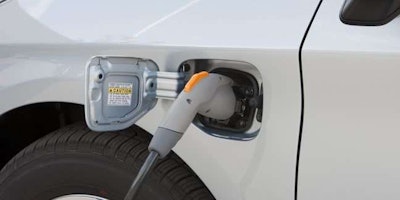 (Photo: Toyota Of Palo Alto / Flickr)
(Photo: Toyota Of Palo Alto / Flickr)In an attempt to battle lost taxes due to increased hybrid and electric car use, six states are working to create laws to tax fuel-efficient vehicles, Automotive News and Bloomberg reported.
Electric and hybrid car sales have continuously risen in the last decade, while state and local gas tax revenues have fallen. In fact, inflation-adjusted data from the Institute on Taxation and Economic Policy have shown that those revenues dropped 7 percent to $37.9 billion in 2010.
To compensate, five states–Washington State, Virginia, New Jersey, Arizona, Indiana and North Carolina–have proposed legislation to generate fuel-efficient vehicle-specific taxes that would help fund roadwork in those states.
Washington State lawmakers have implemented a $100 annual fee for electric car owners
Virginia approved a $64 annual fee on hybrid and electric cars.
New Jersey Senator Jim Whelan proposed a $50 annual fee on electric and compressed natural-gas cars. All revenue from the fees would be used for road and bridge maintenance.
Arizona lawmakers proposed Farley’s measure, which would tax electric cars 1 cent per mile driven on Arizona highways. The tax, which has stalled, would collect about $120 annually per car. Texas lawmakers have considered a similar bill.
A committee of Indiana lawmakers are studying a road impact fee on electric and hybrid cars. The fee would be paid at registration.
North Carolina’s Senate last month approved a budget plan with a $100 fee for electric cars and a $50 fee for hybrid cars. The House still needs to review the plan.
Opponents of the fees and taxes on hybrid and electric cars have said the extra fees contradict government promotion of renewable energy, particularly governmental tax credit incentives.
Critics have also said the market for hybrid and electric cars is too small to affect taxes and that the additional taxes and fees are unfair to owners of hybrids that consume more fuel than a compact gasoline car.









